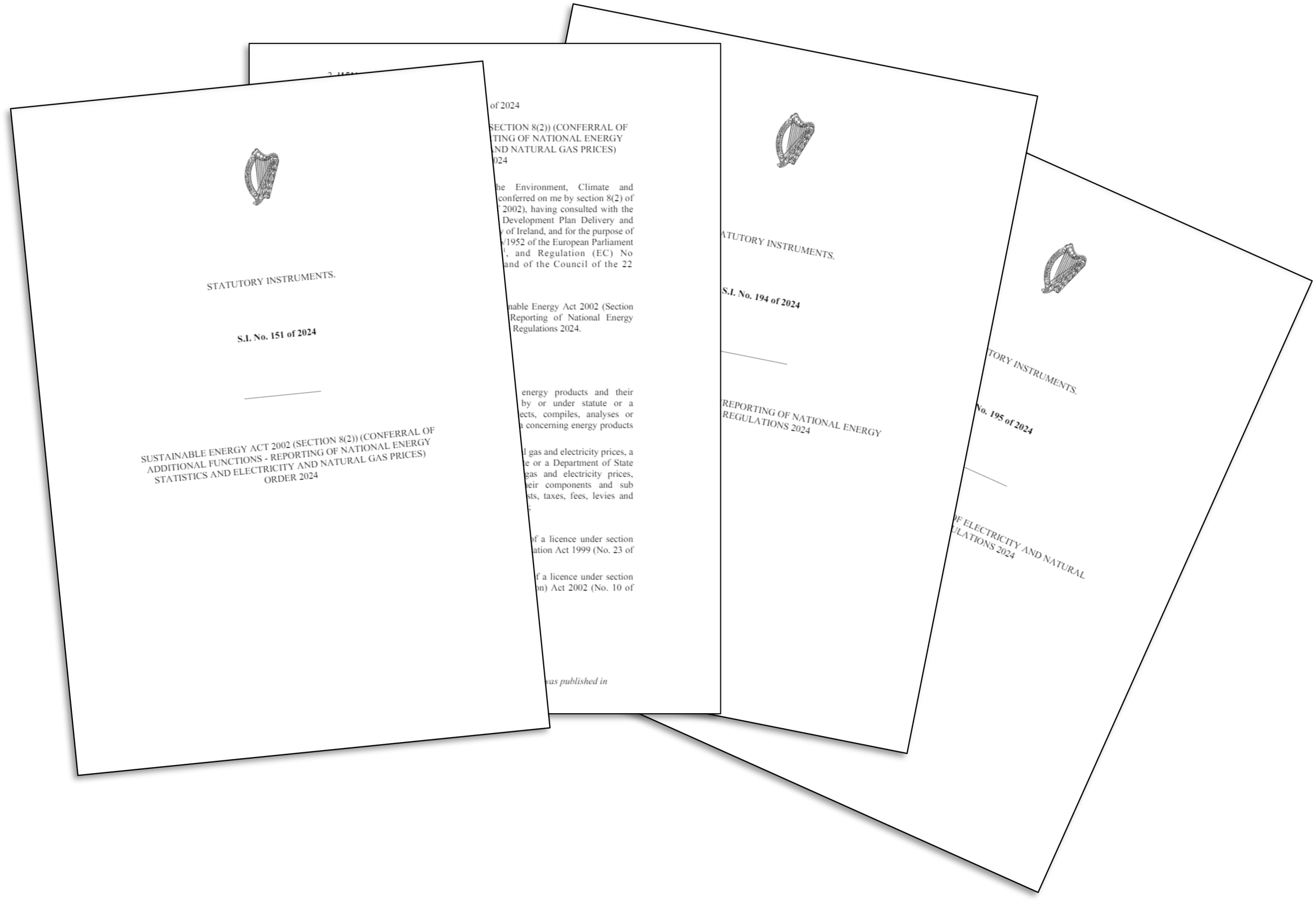Stat Chat: Truth, Trust, and Timeliness
New statutory instruments recently added to the Irish statute books enhance SEAI's legal basis to collect energy data - find out why that's good news for enhancing trust in Ireland's national energy conversation.
At her Nobel peace prize lecture, Maria Ressa said "Without facts, you can't have truth; without truth, you can't have trust". Although SEAI's Energy Statistics team doesn't yet have a Nobel laurate on the payroll, we absolutely agree that rigorously and transparently developed facts are essential for maintaining truth and trust in public debate.
A key function of the Energy Statistics team in SEAI is to help inform evidence-based discussions by-and-between policy makers, journalists, researchers, businesses, and Irish citizens. We work hard to publish accurate and timely data on the supply, demand, and cost of Ireland's energy. But a chain is only ever as strong as its weakest link. The accuracy and turnaround time of SEAI's energy insights are critically dependent on our ability to quickly secure accurate data from the many different energy suppliers, importers, generators, distributors, and resellers operating in the Irish market.
In April and May of this year, this ability was significantly enhanced through the conferral of additional functions on SEAI by the Minister for the Environment, Climate and Communications, for the purpose of reporting national energy statistics, and electricity and natural gas prices. Three new statutory instruments give SEAI a formal legal basis to direct relevant competent authorities (e.g. state bodies), suppliers (i.e. license holders under the gas and electricity regulation acts), and undertakings (e.g. producers, distributors, and commercial end users) to provide energy data to SEAI, such that it can satisfy Ireland's international reporting obligations to the European Commission. These reporting obligations are set out in the Energy Statistics Regulation 1099/2008 (ESR) and the Statistics on Natural Gas and Electricity Prices Regulation 2016/1952 (EPR) and their amendments. Between them, these two EU regulations cover everything from:
- Ireland's monthly and annual supply of electricity, gas, oil, and solid fuels
- Biannual price breakdowns for electricity and natural gas by market and consumption level
- Reporting on renewable energy shares in electricity, transport, and heating
All of which are key to supporting informed data-enabled conversations on energy and climate policy at home and across Europe.
Thankfully, the Energy Statistics team in SEAI is fortunate to enjoy strong working relationships with most energy suppliers and actors in the Irish market, many of whom are already genuinely bought into the need for accurate and timely national statistics. In many cases, the new function and legal basis recently conferred on SEAI will simply formalise and codify these existing positive engagements with that energy community. But where energy suppliers have consistently been resistant or slow to complete the energy surveys run by SEAI to satisfy national obligation deadlines under the ESR and EPR regulations, the new statutory instruments allow legal action to be taken.
By helping SEAI quickly collect energy data from everyone equally, the new statutory instruments will act to enhance the truth, timeliness, and trust that can be placed in Ireland's energy statistics - and that's good news for everyone! You can view all three new statutory instruments using the links below:
- SI-151/2024 - Sustainable Energy Act 2002 (Section 8(2)) (Conferral of Additional Functions - Reporting of National Energy Statistics and Electricity and Natural Gas Prices) Regulations (19-APR-2024)
- SI-194/2024 - European Communities (Reporting of National Energy Statistics) Regulations (14-MAY-2024)
- SI-195/2024 - European Union (Reporting of Electricity and Natural Gas Prices) Regulations (14-MAY-2024)


